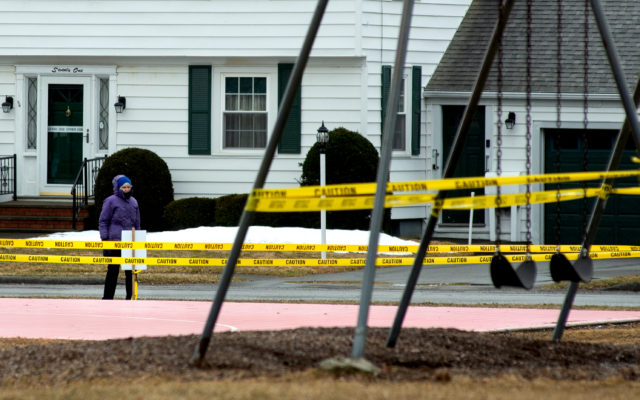
What you can and cannot do under the stay-at-home order
A new order from Gov. Janet Mills that Maine residents stay in their homes is now in effect.
It’s the strongest step yet the Democrat has taken to halt the spread of the new coronavirus.
Maine is among at least 30 states that have issued stay-at-home orders, according to the Kaiser Family Foundation.
With the order set to last through April 30, here’s what you can (and can’t) do while that is in place.
Can I go outside?
Yes, you can actually leave the home for what the governor called “essential activities,” but social distancing guidelines — staying at least six feet away from others and avoiding groups of more than 10 people — remain in place if you do venture outside.
Can I go to the store?
This is one of the “essential activities” provided for in the order. You can still leave the home to buy groceries at the supermarket, pick up medication from the pharmacy and other items needed to work from home, take care of pets and livestock, and otherwise maintain a sanitary home.
The order also directs stores that continue to operate to limit the number of people inside at any given time. For your standard chain grocery store, such as Hannaford or Shaws, that limit is set at 75. For big-box stores, such as Walmart, Lowe’s and Home Depot, the limit is 100. Gas stations, meanwhile, have been asked to let no more than five people inside at a given time.
Dr. Nirav Shah, the director of the Maine Center for Disease Control and Prevention, said Wednesday that older Mainers and those with pre-existing medical conditions stay inside whenever possible and reach out to neighbors who could help them with grocery shopping and other essential errands.
What if I have to leave home for work?
If you are employed at an “essential business,” can continue to travel to and from work if you are not able to do so from home. Essential businesses include grocery stores, construction companies, pharmacies, post offices, banks, veterinarian offices and pet supply stores, among others.
How about exercise?
You can continue to go outside to run or walk in the park, hike, bike and fish. That’s provided that you maintain social distance from others who aren’t in your household. This means no pick-up basketball games or other large outdoor events. Some cities, including Bangor, have closed playgrounds to limit children’s potential exposure to the virus. Some state parks as well as Acadia National Park also have closed to avoid drawing large crowds.
What about eating out?
You can’t dine out for now. Bars and restaurants have been closed to dine-in service since last month. They can continue to operate so long as they limit service to takeout and delivery only. That has been in effect since the governor declared a civil state of emergency on March 18.
Can I leave home for anything else?
The order also permits you to leave the home to do laundry, to pick up meals or material needed for remote learning from schools, to care for family, friends, pets and livestock at another household, and to access medical and behavioral care, among other exceptions.
What else does the order mandate?
On top of everything else, the governor has ordered schools to remain closed until at least May 1, but that’s already the case in many school districts. Mills also has advised that you avoid public transportation, except when necessary for any of the above reasons, and limit passengers in private vehicles to those within your immediate household.
Can I come home if I am a seasonal resident?
The state government is discouraging anyone from outside the state, whether they are visitors or summer residents, from coming into Maine. Mills said Tuesday she isn’t ordering state troopers to stop vehicles coming into the state, as has been done in other states, such as Rhode Island. At this time, the state is relying on voluntary compliance and people using their best judgment.
“There may well be a significant population in Florida of ‘snowbirds’ who want to come back. We’re asking them to stay put, because it’s the safest thing for them to do for themselves and the people they might come into contact with here,” Mills said during a Tuesday press conference.
Is the order enforceable?
The order is enforceable under Title 37-B of the state statutes. Police can “enforce as necessary,” the governor said Tuesday. Violations would be a Class E crime, with penalties of up to six months in jail and a $1,000 fine. Whether anyone will be penalized isn’t clear given the number of exceptions to the order and as sheriffs, defense attorneys, prosecutors and judges work to keep fewer people in county jails to limit the risk of an outbreak.